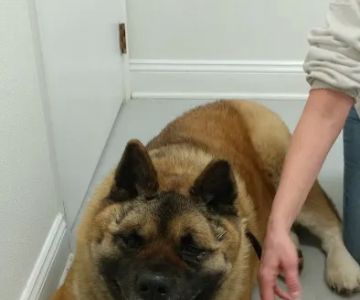What Experience Is Needed to Become a Veterinarian?
Becoming a veterinarian is an exciting and fulfilling career choice for those who love animals. However, the path to becoming a licensed vet requires a significant amount of education and experience. In this article, we’ll explore the various types of experience necessary to become a successful veterinarian, the skills you need to develop, and how long the journey typically takes.
1. Educational Foundation: A Strong Start
Before diving into the specific experience required to become a veterinarian, it’s important to understand the foundational education. The first step on the path to becoming a veterinarian is obtaining a solid educational background. Most veterinarians start by completing a four-year undergraduate degree. While there’s no specific undergraduate degree required to become a vet, most aspiring veterinarians major in subjects like biology, animal science, or pre-veterinary studies. These programs provide a foundation in the sciences that will be essential for veterinary school.
During your undergraduate years, you’ll need to focus on taking courses in biology, chemistry, physics, and mathematics. Additionally, gaining practical experience in animal care through internships, volunteering, or working at animal shelters will be beneficial. These experiences not only give you a better understanding of animals but also demonstrate to veterinary schools that you have a passion for animal care.
2. Veterinary School: Specialized Education and Hands-On Training
The next step in your journey is attending veterinary school, which typically takes four years. Veterinary programs are extremely competitive, and you’ll need to apply to accredited schools to begin your studies. During these four years, you’ll receive a combination of classroom education and hands-on clinical training. Veterinary schools focus on anatomy, physiology, pharmacology, pathology, and other essential areas of animal care.
In addition to coursework, veterinary students gain valuable experience by working in veterinary clinics and hospitals. They learn how to diagnose, treat, and perform procedures on various animals, including pets, livestock, and wildlife. This hands-on experience is invaluable in developing the practical skills needed to become a competent and skilled veterinarian.
3. Internships and Residencies: Gaining Advanced Experience
After completing veterinary school, many veterinarians choose to further their expertise by specializing in a particular area of veterinary medicine. This requires additional experience through internships or residencies. These programs provide in-depth training in specific fields, such as surgery, dermatology, cardiology, or oncology. Specializing in a particular area allows veterinarians to become experts in that field and provide highly specialized care to animals.
Internships typically last one year and offer veterinarians the chance to gain real-world experience in their chosen specialization. Residencies, which are more intensive, can last from two to four years, depending on the area of focus. These years of additional training help veterinarians develop advanced skills and knowledge in their specialized field.
4. Licensure and Certification: Legal Requirements to Practice
In order to practice as a veterinarian, you must obtain a license in your state. In the United States, this generally involves passing the North American Veterinary Licensing Examination (NAVLE). This exam tests your knowledge and ability to apply veterinary medicine in practical scenarios. The NAVLE is a critical part of becoming a licensed veterinarian and is a key requirement in most states.
In addition to the NAVLE, some states have specific requirements for licensure, such as continuing education or additional exams. Some veterinarians may also choose to obtain board certification in a particular area of specialization. While certification is not required to practice as a veterinarian, it can open up additional career opportunities and increase your credibility in your field.
5. The Role of Experience in Veterinary Practice
While education and exams are necessary steps, the most important experience for a veterinarian comes from hands-on work with animals. Throughout your career, you will gain more experience by treating a wide variety of animals and dealing with different medical conditions. This experience helps to build confidence and competence in diagnosing and treating animals in different situations.
Veterinarians often work in diverse settings, including animal hospitals, private practices, research facilities, and zoos. The more experience you gain in different settings, the more well-rounded you will become as a professional. Whether you are performing routine check-ups or handling emergency surgeries, every experience will contribute to your development as a veterinarian.
6. Additional Skills and Experiences to Cultivate
In addition to formal education and practical experience, veterinarians must also cultivate certain soft skills. These include excellent communication skills, empathy, and the ability to manage both animals and pet owners in stressful situations. Working with clients is an important part of being a veterinarian, as you will need to communicate effectively with pet owners about diagnoses, treatment plans, and follow-up care.
Being a veterinarian also requires problem-solving abilities, attention to detail, and the capacity to work under pressure. The ability to multitask and stay calm in emergencies is crucial, as animals can require immediate care, and you’ll need to think critically in high-stress environments. Veterinary professionals are often faced with life-or-death situations, so emotional resilience and clear-headed decision-making are also important qualities to develop throughout your career.
Conclusion: The Path to Becoming a Veterinarian
Becoming a veterinarian is a long and challenging process that requires years of education, hands-on training, and dedication. The combination of academic achievement and practical experience is essential in developing the skills and knowledge needed to care for animals effectively. Whether you choose to specialize or work in general practice, the journey to becoming a veterinarian is highly rewarding, both personally and professionally. By gaining a solid foundation of education, experience, and emotional resilience, you can successfully navigate the path to a fulfilling career in veterinary medicine.
SEO Title: What Experience Is Needed to Become a Veterinarian? Your Complete Guide
SEO Keywords: what experience is needed to become a veterinarian, veterinarian career path, veterinary experience requirements, becoming a veterinarian, how to become a vet, veterinarian education and training
SEO Description: Learn about the experience needed to become a veterinarian, including educational requirements, internships, residencies, and the skills needed to succeed in this rewarding career. Discover the path to becoming a licensed vet.











